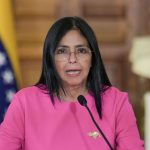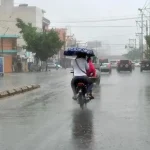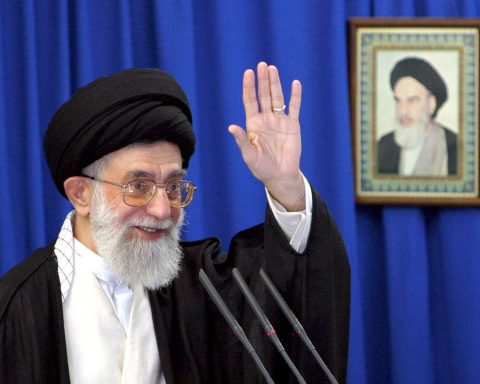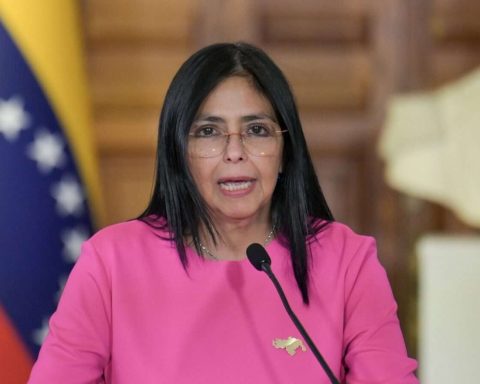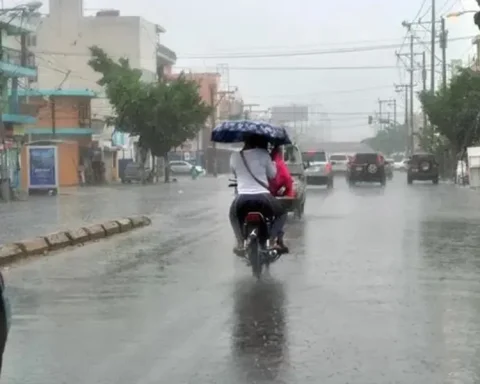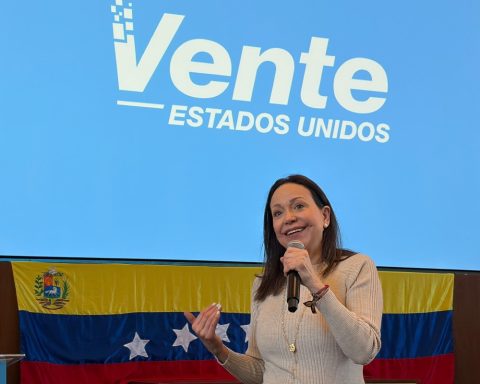We close this cycle of interviews on the theme of transforming education, with María Victoria Peralta, winner of the 2019 National Education Award. Peralta has had relevant steps through different roles in early childhood education: educator, academic, researcher, director of the Board National Kindergarten (Junji), curriculist and consultant. She is currently a tenured professor at the Central University. Her voice is valued and respected for having her feet on the ground, in permanent bond with her colleagues who work in kindergartens and schools.
Early childhood education has undergone transformations and has been progressively highlighted in educational systems and the public agenda. María Victoria Peralta offers her vision of the transformations that still need to be promoted or strengthened
-What advances have been made in early childhood education and what aspects are important to transform?
-I would make a separation between advances in theory and advances in practice. In theory and in everything that has to do with the foundation of early childhood education, they have made enormous advances. However, it is also important to consider that several valuable aspects that are already a century or two old are still valid. Although the philosophical and pedagogical foundation and later that of the nascent psychology, as well as something in the field of health, provided the bases of preschool education, these pillars were quite rich. If you review those ideas, there was a great respect for the child and a vision of a whole human being. For example, one reads Fröbel’s work on the matter, and the fact that he was in 1826 talking about the subjects of his own learning is very relevant, because his postulates are quite challenging.
Subsequently, this fundamental basic knowledge was notably enriched when other sciences appeared, such as neurosciences, neurobiology or the different contributions to contemporary psychology. The same pedagogy advanced as well. With its move from a modern science to a postmodern science there has been an enormous gain in respect for diversity, subjectivity, children’s senses and hearing their voice. Loris Malaguzzi talks about a pedagogy of listening, which, instead of being centered on adults, recognizes the meanings that things have for children, also considering a flexible and diversified image of children in their context. From these perspectives, we are no longer talking about a “universal child” and a level blank slate for all.
However, regarding the application of these ideas we cannot see the same advances. It is incredible that centuries have passed and that many times we are still with a very traditional approach. Of course there are institutions like Junji and Integra, which have a culture of pre-school education, but, despite this, the education that is in public and private schools tends to be schooled. I don’t know how many columns I’ve written on this subject in the last decade, I think three or four a year, at least. A CIAE investigation recently came out, commissioned by the Ministry of Education, which detected that most of the activities that are being carried out in the transition levels were very academic, focused on fairly traditional mathematics and an introduction to reading and writing. Also traditional writing.
In other areas, for example, you don’t see nature or contact with direct things, but a lot of pencil and paper work. This is not how the current proposal for integrated projects is supposed to be, where children investigate and link different topics, but actions such as copying and repetition continue to be prioritized. Therefore, we have here a problem of the qualities of education, which still have not been fully released and for which there are a lot of causes that can be explained from the school system itself and normative aspects, but also because the mind of the directors of the institutions -and sometimes of the educators themselves- are carried away by this system that “schools down” and not the effect that it should be, that preschool education promoted “upwards” a much more dynamic and flexible.
– Do you think that the system encourages over-schooling? And how does it do it?
-The educational system has homogenized all levels, including pre-school education. The Curricular Bases of pre-school education –in its 2001 version and in part also in its update– give enough freedom for educators to choose their ways of working, contextualizing, etc. But the problem is that, at the same time, other instruments were designed that established more linear visions of learning. Child development is a spiral with links to different sides, where we cannot say “this first, this second, this third”, except in what is obvious, which has to do with the maturation of the child. At the time of working, an early childhood educator has the Curricular Bases, the Good Teaching Framework, the guidelines from the Quality Agency, the definitions of the Early Childhood Education Superintendence, which in turn generate a large number of instruments. intermediate, which are often in tension with each other. These elements also go backwards, because they take away the freedom and security of educators. Instead of telling him “you are the education professional, who diagnoses your children and knows what they require”, he leaves very small spaces for him to make a curriculum a little more free.
-How do you see the people involved in the formative process of early childhood education, the families and the educators?
-Among all the phenomena that hinder the progress of preschool education, one aspect that is very important is the vision that families have of it, which tends to be very traditional, the vision of the small traditional school. For example, in the time of a pandemic, what happened to the child at home? A notebook and a pencil to make “sticks” or numbers, that is, the things that they learned at school when they were children. Something that my colleagues question a lot is that parents seem to believe that if the child does not come out of pre-school education reading and writing, it is a bad kindergarten. It is not easily accepted to talk about the symbolic function of education, but it is expected that they have advances like the ones I have just mentioned.
There is another issue that seems relevant to me in relation to families. We have to talk like adults with them in meetings, because sometimes these translate into dealing with issues such as domestic gardening, such an activity, this or that. When we returned to face-to-face, it was as if nothing had happened, “we played crazy” -using the Chilean expression- educators, parents, family, community. We did not talk about the fact that we were all afraid and that we continue with uncertainty, with many doubts. However, we didn’t start talking like adults about this.
Just as we were affected, the children also had complex experiences. How many preschoolers that are in the kindergarten today were born in times of pandemic? His knowledge in society was being in a house and seeing human beings from the nose up. If he saw a little boy through the window, his parents would tell him that he couldn’t go out and play with him. So, children need a lot of social relationships and I believe that these issues must be discussed with families.
In relation to educators, for their part, in my opinion, after the pandemic, they must be re-empowered so that their work does not have to be that homogeneous. In addition, we have to worry strongly about their well-being. This educator is also damaged by the issue of the pandemic, he too was scared. Another recent study indicates that practically no educator received any kind of support when she returned to work, since she believed that she needed it and that she possibly will continue to need it. We have not yet acknowledged receipt that the pandemic has not gone away, that 16 more Chileans died yesterday, that we have more than 60,000 deaths, which has affected all families in the country in some way. There is a pending issue, referring to support for educators in their emotional development and also in cultivating a more hopeful outlook on life, considering the current scenario of a world of uncertainty and lack of references.
-What alternative approaches to early childhood education could be considered to make progress in the difficulties that you have mentioned?
-A strong trend in different parts of the world is to consider happiness centrally in the process of early childhood education. Educating for happiness and in happiness should be a very marked emphasis at this time for children, in order to make children enjoy their lives as boys and girls, so that educators can balance more and so that families abandon their gazes and the negative language that we have. For this reason, I believe that the emphasis after this pandemic is to strengthen an education with an emphasis on well-being, on the encounter between people. I would say that in general we need educational projects that consider humanistic approaches, of which there are different versions. It’s from Waldorf, which has been around for so long, or education or personalized curriculum. Humanistic emphasis is important, because it promotes the development of educational communities, also taking value issues into account. Other countries are enriching their curricula, for example, the Dalai Lama launched a happiness resume in India, which is being applied massively and means considering moments of breathing, environments of serenity, getting to know oneself, enjoying nature. Besides of happiness resumeIt is also interesting to look at the “Happy Schools” movement that is applied in Thailand, or other proposals that consider human development, sustainable development, with all that this implies.
The regulations can be tremendous with children. We have to go out into the street again, on different sides, as it was before. Boys and girls need contact with nature, both to care for and preserve it and to enjoy it, what is a damp grass, the smell of a flower or an aromatic herb. We have to develop and promote the human side, which we have left very aside, we need a healthy and healthy environment and we are not having that at the moment either.









